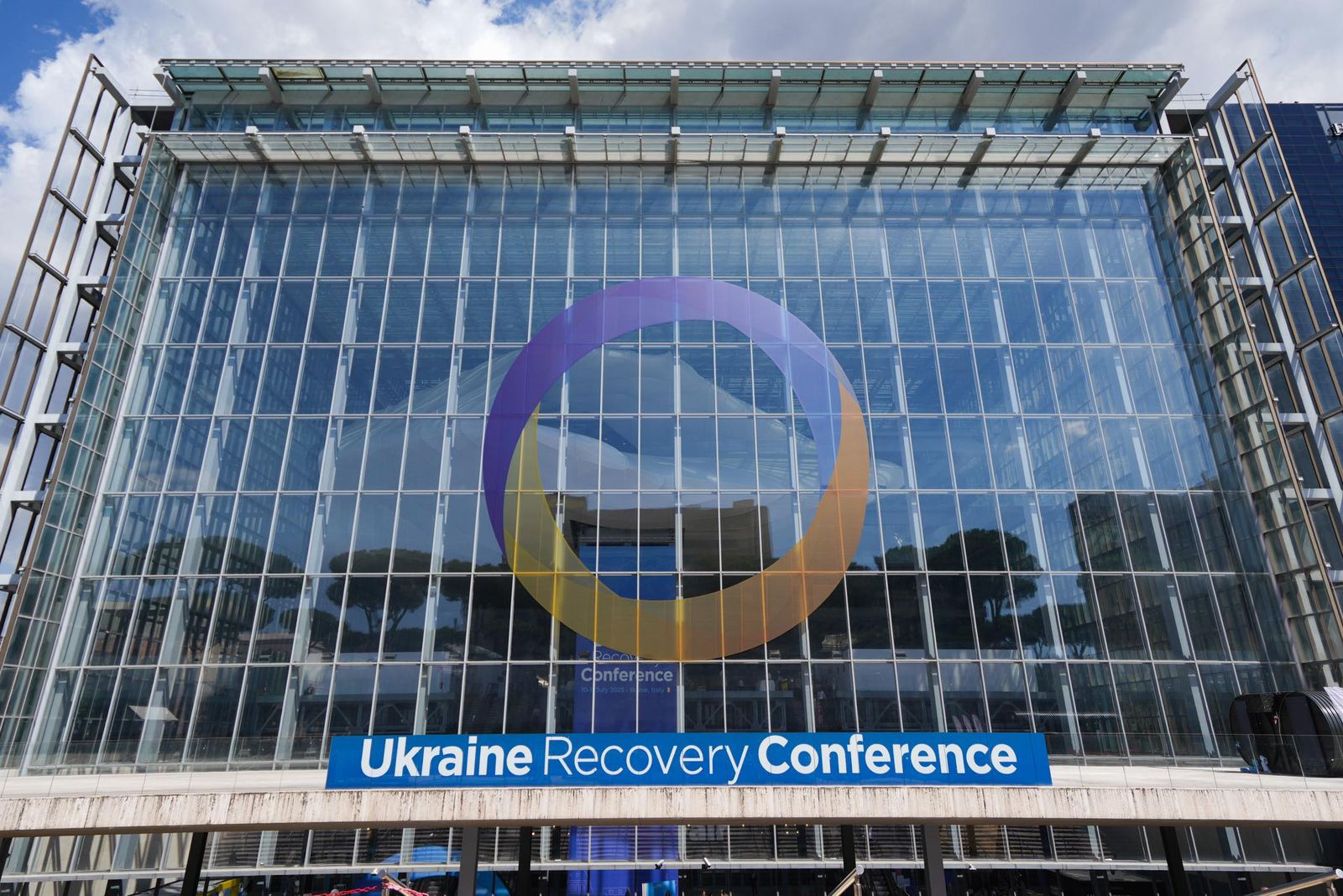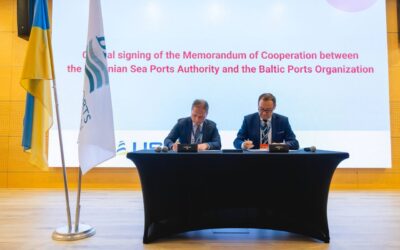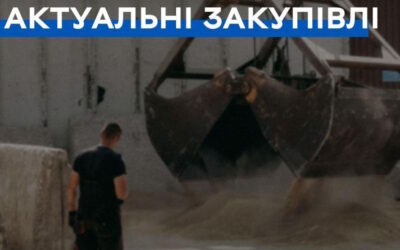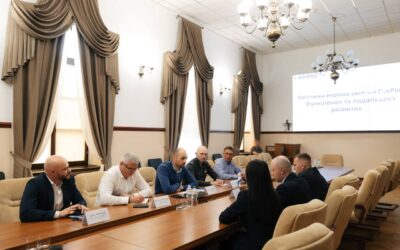URC2025: Strategic Outcomes for Ukraine’s Port Sector
The Ukraine Recovery Conference (URC2025) took place in Rome, serving as one of the leading international platforms for coordinating efforts to rebuild Ukraine. The delegation of the USPA, led by Head, Oleksandr Semyrga, presented the current state of the port sector, outlined infrastructure modernisation priorities, and identified potential areas for cooperation with international partners.
Despite operating under wartime conditions, Ukrainian ports continue to ensure the stability of logistics chains. In this context, international technical, expert, and financial assistance remains critically important — both in the short term and as part of Ukraine’s long-term recovery strategy. Discussions at the conference confirmed that international partners recognise the potential of Ukraine’s port infrastructure and are prepared to invest in its development, despite ongoing security challenges and difficult conditions.
Head of the USPA, Oleksandr Semyrga, held a number of working meetings with international partners, focusing on practical steps toward port infrastructure modernisation, digital transformation, and preparing investment projects for implementation.
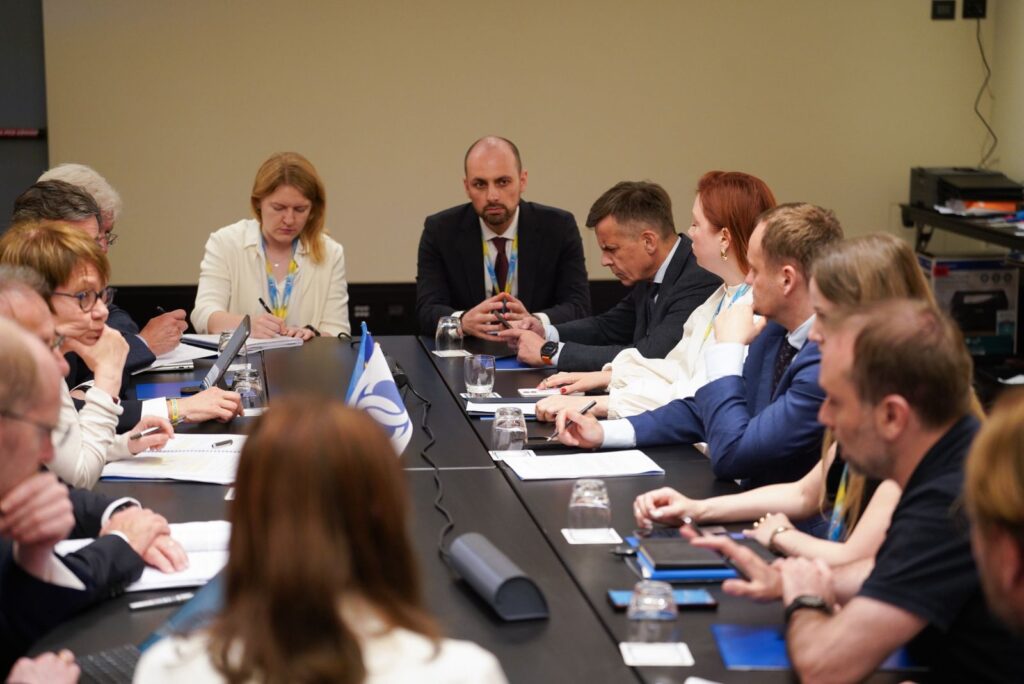
Key topics and agreements included:
• During URC2025, Head of the USPA met with Neils Kalniņš, Director of the 5G Techritory Program at the Electronic Communications Office of Latvia. The meeting continued collaboration with Latvian partners, who have extensive experience in digital transformation in maritime logistics. The Ukrainian side presented the practical outcomes of its electronic port management system DocPort and outlined plans for scaling it up. The Latvian side confirmed its readiness to fund expert involvement to further support the project technically.
• Head of the USPA also met with representatives of major logistics companies from the Netherlands, Denmark, France, and Belgium. Future cooperation opportunities were discussed with regard to the implementation of investment projects and the development of joint initiatives in the field of logistics and infrastructure recovery. Foreign companies expressed interest in working with Ukraine despite security concerns. Preliminary agreements were reached on launching new logistics routes to strengthen supply resilience during wartime, and on establishing cooperation with the Port of Antwerp.
• In a high-level meeting led by Deputy Prime Minister for Restoration of Ukraine, Oleksii Kuleba, with EBRD President Odile Renaud-Basso, the Bank reaffirmed its intention to expand operations in Ukraine to €3 billion annually. The discussion focused on supporting state-owned enterprises, including in the port sector; recovering critical infrastructure in frontline regions; and investing in logistics, water supply, and energy security. Several port infrastructure investment projects of interest to the EBRD were discussed.
• Oleksandr Semyrga also took part in a dedicated panel entitled “Building a modern Ukraine through strategic investments, public-private partnerships, workforce development, and cross-sector innovation”, organised by Deloitte Italy, Confindustria, ISPI, and the Kyiv School of Economics. During his speech, he presented the performance of Ukrainian ports during wartime and underscored the need for international investment to support future infrastructure projects.
• As part of newly signed memoranda with the Port Authorities of the Eastern Adriatic and Western Ligurian Seas, specific agreements were reached to initiate cooperation between the ports of Odesa and Chornomorsk with the ports of Trieste and Genoa, respectively. In addition to traditional areas of collaboration (such as knowledge-sharing and the implementation of digital solutions), a key priority will be establishing new logistics routes for Ukrainian cargo and companies. The ports of Genoa and Trieste serve as strategic logistics hubs in southern Europe, offering new opportunities to integrate Ukraine’s port system into European transport corridors.
Background:
The Ukraine Recovery Conference (URC2025) marked another important milestone in the global effort to support Ukraine’s restoration. The conference brought together more than 4,000 representatives of governments, businesses and civil society — including heads of state and government from over 100 countries and international organisations, top EU officials, the U.S. Special Representative for Ukraine, senior representatives of the governments of Austria, the United Kingdom, Denmark, Libya, Malta, the Holy See, and other countries, as well as ministers of foreign affairs, economy, finance, and energy from across the globe – from Europe to Latin America. Participants included international organisations, financial institutions, business associations, and civil society groups. URC2025 served not only as a platform for dialogue on recovery, but also as a symbol of Ukraine’s irreversible European path and the shared responsibility for Europe’s security and development.



